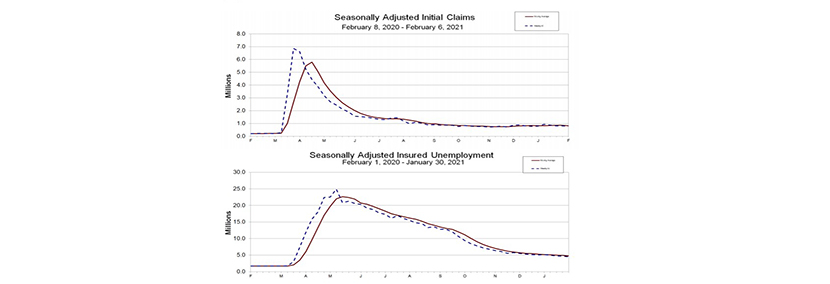
Unemployment Claims Show Little Progress

Initial claims for unemployment insurance fell last week, the Labor Department reported, but an upward revision to the previous week’s results negated any progress toward a normalizing economy.
The report report said for the week ending February 6, the advance figure for seasonally adjusted initial claims fell to 793,000, a decrease of 19,000 from the previous week’s level. However, Labor revised up the previous week’s level by 33,000, from 779,000 to 812,000. The four-week moving average fell to 823,000, a decrease of 33,500 from the previous week’s revised average.
The advance seasonally adjusted insured unemployment rate fell to 3.2 percent for the week ending January 30, a decrease of 0.1 percentage point from the previous week’s rate, which revised up by 0.1 from 3.2 to 3.3 percent. The advance number for seasonally adjusted insured unemployment during the week ending January 30—also known as continuing claims—fell to 4,545,000, a decrease of 145,000 from the previous week’s level, which revised up by 98,000, from 4,592,000 to 4,690,000. The four-week moving average fell to 4,748,750, a decrease of 157,500 from the previous week’s revised average.
“The trend in filings is little changed over the past few weeks and suggests the labor market recovery is still struggling to regain traction,” said Sarah House, Senior Economist with Wells Fargo Securities, Charlotte, N.C.
House said further dampening the current jobs picture was a rise in the total number of continuing claims for the week ending January 23. “We suspect the increase not only reflects the soft patch the jobs market hit around the holidays as COVID cases spiked and restrictions were increased, but also eligibility extensions under these programs per the December fiscal relief package,” she said.
However, as COVID cases are better managed, House said the heightened degree of turnover in the labor market evidenced by the current level of jobless claims should subside “and for hiring to improve markedly this summer.”
